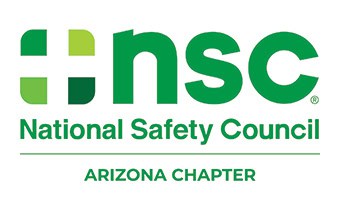A workplace emergency action and fire prevention plan meeting
the requirements of OSHA 29 CFR 1910.38 and 1910.39 standards should address
how to respond in the event of fire. Response plans will vary, depending on
whether fire extinguishers are provided and who is intended to use them.
Interpretation of OSHA standard 29 CFR 1910.157(a) and (b)
provides three possible choices an employer may make to comply with the intent
of the standard.
OPTION 1: Require total evacuation of employees from
the workplace upon the sounding of a fire alarm. When an employer has
an established and implemented a written fire safety policy and has not
provided fire extinguishers in the workplace, he is exempt from requirements in
1910.157.
OPTION 2: Provide portable fire extinguishers and
designate certain employees as authorized to use them to fight fires. All
other employees in the fire area must be required to evacuate the affected area
immediately upon sounding of the alarm. This choice requires the employer to comply
with the 1910.157 (c), (e), (f), (g)(3) and (g)(4) requirements for fire
extinguishers as well as monthly visual inspection, annual maintenance check,
hydrostatic testing according to intervals in the standard, and training.
OPTION 3: Provide portable fire extinguishers and
permit all employees to use them to fight fires. This choice has
additional requirements regarding selected types
of fire extinguishers, distribution, and travel distances based on the classes
of anticipated workplace fires and on the size and degree of hazard which would
affect their use.
Where the employer has provided
portable fire extinguishers for employee use in the workplace, the employer
shall also provide an educational program to familiarize employees with the
general principles of fire extinguisher use and the hazards involved with
incipient stage fire fighting. The employer shall provide employees who have
been designated to use fire fighting equipment as part of an emergency action
plan with training in the use of the appropriate equipment upon
initial assignment and annually thereafter.
Additional information regarding these topics can be obtained by
reviewing the complete referenced standards at OSHA.gov.
Ed Taube, Safety Trainer, Arizona Chapter National Safety
Council
